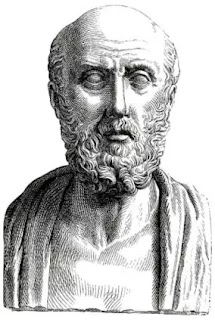Introduction to Zoology
Zoology, a captivating branch of biology, delves into the mesmerizing world of animals, their behavior, physiology, evolution, and interactions with their environment. With a rich history dating back to ancient civilizations, zoology has continuously evolved, enabling us to comprehend the intricate web of life on Earth. This article embarks on a journey through the realm of zoology, shedding light on its significance, history, and key insights.
From Aristotle to Today: How the Father of Zoology Revolutionized Our Understanding of the Animal Kingdom
Imagine a world where our understanding of the natural world was limited to mere observations without any systematic study. Thanks to Aristotle, often referred to as the "Father of Zoology," this is not the case. Aristotle's ground breaking contributions laid the foundation for the study of animals and revolutionized our perception of the animal kingdom. In this article, we will delve into the remarkable journey from Aristotle's pioneering work to the modern insights that shape our understanding of zoology today.
Table of Contents
- Introduction
- Aristotle's Early Life and Curiosity
- Aristotle's Contribution to Zoology
- Observations and Classification
- "Historia Animalium" - Aristotle's Magnum Opus
- The Concept of Scala Naturae
- The Middle Ages and Renaissance Period
- Preservation of Aristotle's Ideas
- Notable Figures in Zoological Studies
- Evolution of Zoology in the Modern Era
- Darwin's Influence and Evolutionary Zoology
- Technological Advancements and New Discoveries
- Contemporary Zoology: Expanding Horizons
- Molecular Zoology and Genetic Insights
- Ethology: Understanding Animal Behavior
- The Impact of Aristotle's Legacy
- Conclusion
Introduction
In the ancient world, knowledge about the animal kingdom was limited to anecdotal observations. Aristotle, the renowned "Father of Zoology," born in 384 BC in Stagira, a Greek city, possessed an insatiable curiosity about the natural world around him. Little did he know that his inquisitiveness would lay the groundwork for the scientific study of animals that we recognize today.
Aristotle's Early Life and Curiosity
The "Father of Zoology," Aristotle's early life was marked by an inherent fascination with the diverse species that inhabited the Earth. His relentless questioning and keen observations paved the way for his lifelong dedication to understanding nature's intricacies.
Aristotle's Contribution to Zoology
Observations and Classification
Aristotle, often hailed as the Father of Zoology, introduced a revolutionary approach that emphasized systematic observation and classification of animals based on their shared characteristics. This methodology formed the basis for the taxonomical systems that followed.
"Historia Animalium" - Aristotle's Magnum Opus
The Father of Zoology's monumental work, "Historia Animalium," was a comprehensive collection of his observations and insights about various species. This pioneering effort became the cornerstone of zoological literature and enlightened generations of scholars.
The Concept of Scala Naturae
Aristotle, the Father of Zoology, introduced the concept of Scala Naturae, or the Great Chain of Being, which placed organisms in a hierarchical order based on their complexity. This idea was a precursor to the modern concept of evolution.
The Middle Ages and Renaissance Period
Preservation of Aristotle's Ideas
Despite the tumultuous times, Aristotle's works persevered through the Middle Ages, serving as beacons of knowledge and inspiring generations of naturalists.
Notable Figures in Zoological Studies
During the Renaissance, the works of Aristotle, the Father of Zoology, were revisited and built upon by luminaries such as Leonardo da Vinci and Andreas Vesalius, enriching the understanding of the animal kingdom.
Evolution of Zoology in the Modern Era
Darwin's Influence and Evolutionary Zoology
The 19th century witnessed a paradigm shift with Charles Darwin's theory of evolution. This revolutionary idea transformed zoology into an evolutionary science, explaining the interconnectedness of species.
Technological Advancements and New Discoveries
Modern zoology benefitted immensely from technological advancements like microscopes and genetic sequencing. These tools unveiled previously unseen dimensions of the animal kingdom.
Contemporary Zoology: Expanding Horizons
Molecular Zoology and Genetic Insights
The study of genetics revolutionized zoological research, offering insights into hereditary traits, evolution, and even species relationships.
Ethology: Understanding Animal Behavior
Ethology emerged as a distinct field, allowing scientists to delve into the behavioral patterns of animals. This understanding contributes to wildlife conservation and animal welfare.
The Impact of Aristotle's Legacy
Aristotle, often recognized as the Father of Zoology, left an immeasurable legacy. His methods of observation, classification, and conceptual frameworks continue to inspire modern zoologists. He laid the groundwork for a discipline that constantly reshapes our understanding of the animal kingdom.
Conclusion
From Aristotle's pioneering observations to the modern frontiers of zoological research, the journey has been one of continuous exploration and enlightenment. The "Father of Zoology" not only expanded our knowledge but also instilled a curiosity that continues to drive the study of life on Earth.
FAQs
Who is considered the Father of Zoology? Aristotle is widely recognized as the "Father of Zoology" due to his foundational contributions to the study of animals.
How did Aristotle classify animals? Aristotle classified animals based on their shared characteristics and introduced the concept of Scala Naturae, a hierarchical ordering of organisms.
What is the significance of "Historia Animalium"? "Historia Animalium" is Aristotle's seminal work that compiled his observations and ideas about various animal species, shaping the course of zoological studies.
How did modern zoology evolve? Modern zoology evolved through the incorporation of evolutionary theory, technological advancements, and specialized fields like genetics and ethology.
What is the legacy of Aristotle in modern zoology? Aristotle's legacy lives on through his methods of systematic observation, classification, and his conceptual frameworks, which continue to inspire and guide zoologists today.











Please Do Not Enter Any Spam Link in Comment.